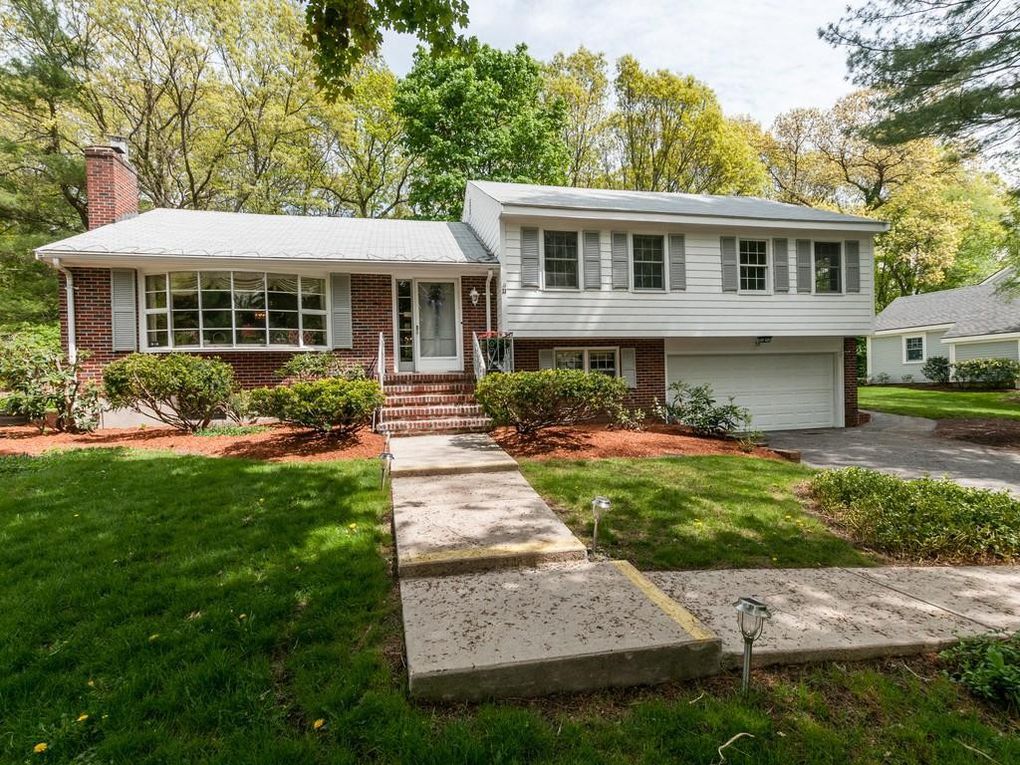Photo: An “average” Belmont home that recently sold for $1.1 million (and it’s a ranch!)
Belmont Board of Selectmen Chair Adam Dash said that next fiscal year’s property tax rate approved by the board Thursday morning, Dec. 13 isn’t that onerous compared to charges imposed in other Massachusetts city and towns.
“It’s our housing values that are high,” said Dash, focusing on the annual dichotomy of where lower tax rates result in raising taxes for Belmont’s property owners after the Belmont Board of Assessors presented its analysis of Belmont real estate valuation during its annual tax classification hearing before the Selectmen.
Robert Reardon, long-time chair of the Board of Assessors, announced that Belmont’s fiscal ’19 property tax rate – which begins on July 1, 2019 – will be set at $11.67 per $1,000 assessed value, a reduction of nearly half-a-buck from the fiscal ’18 rate of $12.15.
But the average quarterly bill isn’t shrinking with the new tax rate as the total assessed value of property in Belmont shot up to $7.947 billion from $7.497 billion in fiscal ’18 as home buyers continue to clamor into the “Town of Homes.”
The healthy increase in Belmont property values also pushed up the average residential home value to $1,090,000, a jump of a little more than 8 percent or $86,000 in 12 months. “Incredible,” said Selectman and lifelong Belmont resident Mark Paolillo upon hearing what the new “average” has become.
With home prices increasing at a steady clip, the annual tax bill in fiscal ’19 on an average assessed valued property ($1,090,000 x $11.67) will be $12,720.30, an increase of $525 from the $12,195.56 in fiscal ’18.
And the town is squeezing every last drop of taxes from the levy; by taking in $89.25 million, it is leaving only $4,003.08 of excess capacity “on the table,” said Reardon.
When Selectman Tom Caputo asked how the new 7-12 school building on the site of Belmont High School will impact tax assessments, Town Treasurer Floyd Carman said the nearly $215 million debt exclusion will be phased in over three years beginning in fiscal 2020. The town is expected to borrow between $85 to $90 million in long-term borrowing in the first two years with taxes on an average home increasing by $680 each year. The final year will be short-term bonds in the $25 million to $30 million range.
“Think $1,800 plus” total increase on the average property in taxes by the start of fiscal 2022, “assuming we keep our [triple A] bond rating,” said Carman.
As in past years, the assessors’ recommended, and the selectmen agreed to a single tax classification and no real estate exemptions. Reardon – who is director of Cambridge’s Assessing Department – said Belmont does not have anywhere near the amount of commercial and industrial space (at must be least a minimum of 20 percent, said Reardon) to creating separate tax rates for residential and commercial properties. Belmont’s commercial base is 3.9 percent of the total real estate.
“Every year, the layperson ask us why we don’t increase the commercial rate, and the reason is that is such a small, small impact,” said Reardon. If Belmont increased commercial rates to the maximum limit under the law, those tax bills would jump on average by $6,350 while residential taxes would fall to $381, placing an unfair burden on commercial owners and their renters “and make Belmont a less desirable town.”
“People always assume there’s more money if you go with the split rate when it really is just shifting the cost to the commercial side,” Reardon said.








Leave a Review or Comment